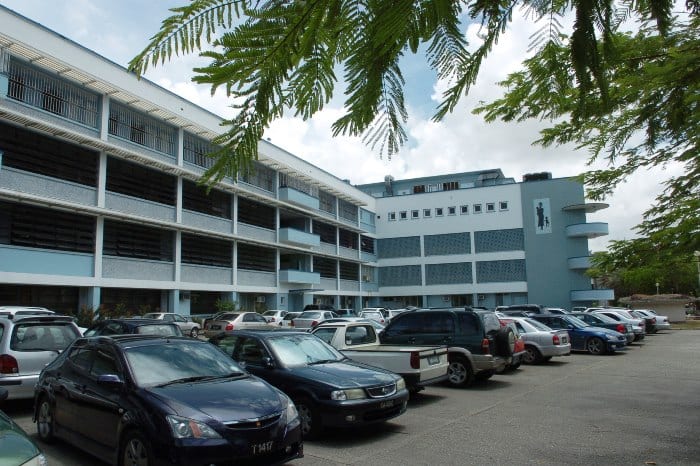
The Queen Elizabeth Hospital. (FP)
The Pan American Health Organisation (PAHO) is in discussion with health authorities about the possibility of upgrading the laboratory capacity at the Queen Elizabeth Hospital (QEH).
Dr. Godfrey Xuereb, the PAHO/WHO (World Health Organisation) Representative for Barbados and the Eastern Caribbean, said such an upgrade would allow it to serve as an external quality assurance laboratory for antimicrobial resistance (AMR) for Eastern Caribbean countries.
Speaking at a workshop recently which focused on completing Barbados’ National Action Plan on AMR, Dr. Xuereb said that PAHO greatly appreciated the leadership role that Barbados had played over the years in infection prevention and control, and continued to work closely with the Ministry of Health on AMR detection and monitoring. In 2015, PAHO procured a state-of-the-art blood culture machine for the QEH Laboratory.
He noted that in addition to laboratory capacity, PAHO was cognisant of many other issues facing Caribbean countries with regard to AMR response, including rational and appropriate use of antimicrobial agents, inter-sectoral collaboration and coordination, and evidence-based decision-making.
“Available evidence shows that antimicrobial resistance is not only the result of transmission of resistant strains between humans, but can also be acquired through exposure to affected foods and products of animal or plant origin.
“Hence the need for stronger collaboration and coordination between the health sector, agriculture, veterinary services, animal and plant production and other relevant stakeholders under the umbrella of the One Health initiative,” he maintained.
Dr. Xuereb urged a multidisciplinary approach to come up with a plan to operationalise global and regional AMR prevention and control strategies, taking into account the national context.
The WHO published the Global Action Plan on AMR in 2016.The National Country Plans of Action are due in May 2017.
